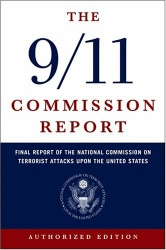

The media is buzzing about his bold move Monday morning, when he introduced a measure to censure President Bush.
“Resolved that the United States Senate does hereby censure George W. Bush, president of the United States, and does condemn his unlawful authorization of wiretaps of Americans.”
It was revealed in December, 2005 that the National Security Agency was wiretapping American citizens inside the United States.


Hiding behind their usual reasoning of ‘protecting us from terrorists’ the administration refused to reveal any details of the program. Their justifications wilted under the harsh light of reality.
In contrast to their statement that ‘the program involved a very small number of people’, further documents revealed the number to be in the hundreds of thousands. Then it was discovered that the National Security Agency was not obtaining warrants for these wiretaps.
After former President Nixon’s wiretapping of enemies was uncovered, Congress passed the FISA law as a way to keep future Presidents’ honest. The Foreign Intelligence Safety Act has been amended several times since then. In essence, it is a secret court system available to the Department of Justice to obtain warrants, offering a check/balance to the system. With both its 95% approval of warrants, and the ability to file for the warrant 72 hours AFTER the wiretap was placed, there seemed no reason not to use such a system.
When Congress was giving the President additional powers with the Patriot Act, they asked the Administration’s representatives if they needed additional measures under the FISA warrant system. Congressional representatives were told that was unnecessary.

 Recently it was revealed during Senate hearings with Attorney General Gonzales that the President began obtaining warrants without using the FISA process within days of 9/11/2001. Therefore, at the very time, the Congress was offering to expand the FISA law, and the Administration was saying that it was unnecessary. The President and his staff were already violating the law.
Recently it was revealed during Senate hearings with Attorney General Gonzales that the President began obtaining warrants without using the FISA process within days of 9/11/2001. Therefore, at the very time, the Congress was offering to expand the FISA law, and the Administration was saying that it was unnecessary. The President and his staff were already violating the law.The Administration tossed out a variety of reasoning for their ignoring the FISA law, apparently trying to find one that would stick. From the very weak “it requires too much paperwork” to the contention that Congress’ really approved the President’s ability to do such things when they passed the measure allowing him to send troops to Afghanistan; each was met with anger and counter-arguments spelling out their fallacies.
However, the rationale with the most frightening implications was President Bush’s theory that ‘since we are at war (on terror) the President is allowed extraordinary powers and can basically do whatever he wants if he thinks it is important, and it is impossible for him to break the law under those circumstances’.


The airwaves, newspapers, magazines, and the Congressional Record were filled with discussions on the viability of that theory. In summary, most disagree with Bush’s contention that ‘other President’s have done this’; and with the exception of his hand-picked legal team, few scholars and attorneys agree with his reasoning. The premise has never been tested in the courts.
Congressional members of both parties were outraged, condemning the President’s actions and justifications. The “Impeach” word was spoken as a possibility, by Democratic (and a few Republican) leaders in both the House and Senate. The Senate Judiciary Committee began holding hearings. Then the White House invoked their right of ‘Executive Privilege’ to a long list of important witnesses the Senators wanted to interview, effectively impeding any further investigation.
The Select Committee on Intelligence also had authority to investigate the issue. According to their website, their job was to: “Provide vigilant legislative oversight over the intelligence activities of the United States to assure that such activities are in conformity with the Constitution and laws of the United States. “
Just as their hearings were about to begin Republican Chairman Pat Roberts announced a ‘deal’ with the Administration. Roberts had agreed to create a second ‘committee within the committee’ to continue the investigation. And lay off the public hearings and investigation.
No one who follows politics had any illusions about the committee’s ability to access the necessary people and information. Or that they would get to the core of the magnitude of the domestic spying. The Republican majority had maneuvered to avoid holding the President accountable for violating the law.
This action alleviated the potential problem and allowed committee members to step back from any controversy. Now they could go back to fund raising and political cronyism. Both Republicans and Democrats seemed complicit in wanting the issue to disappear.
When Russ Feingold ran for United States Senate against a popular Republican incumbent his lack of money and name recognition required creativity. His innovative strategy to achieve name recognition and portray his message included a “contract” written on his garage door. These promises were commitments to:
1) rely on Wisconsin’s citizens for most of his contributions
2) live, send his kids to school and spend his free time in Middleton
3) accept no pay raise
4) hold a ‘listening session’ in every county every year
5) choose those with ties to Wisconsin when hiring his Senate staff.
After that surprise victory in 1992, he was re-elected in 98 and ’04. In the Senate he has been a voice of reason and independence. That is rather unusual in that body of posturing political cowards.
No one stepped up to support Feingold and his censure motion. His Democratic colleagues cited lame excuses and began hiding from the press. The Republicans immediately began planning how they could turn this to their advantage.
The American people have been craving, begging its leaders in Congress to do their jobs. Act as a third branch of government. Provide integrity and leadership--and hold the Executive branch accountable when laws were broken.
Fourteen years ago he emblazoned his contract on his garage door. He has held true to that pact. And as a United States Senator he honored his obligation to the American people. He stood alone on the Senate floor and asked his colleagues to hold the President accountable for breaking the law.
He stood alone.





No comments:
Post a Comment